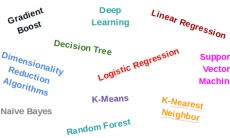Last month, we discussed how privacy became a casualty of the digital revolution: like immunization, we depend on others to protect our personal privacy, and that dependency is making us all more vulnerable. If several friends from my high school search for my name in Google, LinkedIn, or Facebook, “the machine” can infer that we share something in common, even if I rarely use any of those tools. The more they share about them indirectly, they share more about me too.
But privacy is not the only digital casualty. Many traditional institutions operate under the belief that the trust they earned over decades of stellar performance in providing products and services is a major competitive advantage. New players would have a hard time stealing market share, as customers would not trust an organization that had not worked hard to earn their reputation, especially in areas where their personal well-being is potentially at risk.
But the quick rise of startups like Airbnb and Uber shows that the old trust model may not be that much of a barrier for entry anymore. More and more people are switching from reputable hotel chains and taxi companies to consume similar services effectively provided by “the crowd”: a faceless, nameless, brandless group of people that we’ve never heard about before. That would sound like a crazy proposition even ten years ago.
But this is not to say that trust is dead or moribund. What really happened is that our trust model is changing. I recently attended an event where an entrepreneur made an interesting point: trust is no longer something an organization earns, but it’s something an organization can lose. That’s probably part of what is happening, but there’s more to it. From time to time, we hear some horror stories about people having terrible experiences with Airbnb and Uber, but those do not seem to be halting their growth.
In the past, a company with a solid history, brand, and reputation would get our trust simply because we had not much more to use as a proxy: short of us trying them all before we trusted them, we delegated our judgment call to mass media and longevity. If they have been successful for decades and no major bad press came to our attention, it probably meant that they were reliable enough. In some cases, like when looking for a medical doctor, a lawyer or a plumber, we used to rely on advice from our family and friends – just another way to have trust by proxy.
What really changed is that “the crowd” became a reliable proxy for us. The likes of Amazon, Yelp, and TripAdvisor helped to cement a new model where thousands of reviewers became as trustworthy as the mass media or the testimonial from a friend. Those three examples mostly reviewed products or established businesses, but it was just a question of time for the model to expand to time-boxed services. Due to the short length of the commitment (a short stay or ride with a stranger), more and more people are perceiving the rewards to be worth the risk.
The obvious next frontier are services where the commitment is perceived to be larger or longer. For example, many of us still prefer to have major financial services with well known institutions. After all, there’s potentially much more at risk if things go wrong. But as the trust by proxy model continues its evolution, it is not out of the realm of possibilities that more and more people will also be willing to go with faceless, nameless, brandless startups with their finances. History, brand, and reputation can only go so far when the crowd starts moving in a new direction. Rather than feel protected by the old trust they have earned in the past, traditional institutions should get ready to earn this new trust that keeps moving in unexpected directions.






